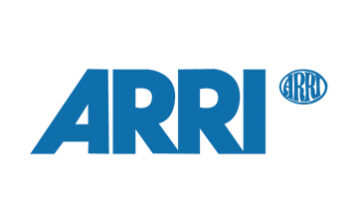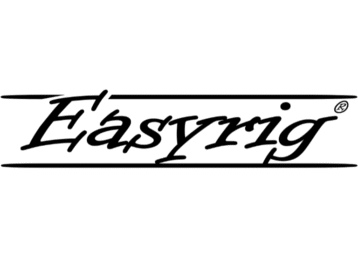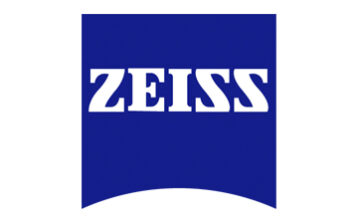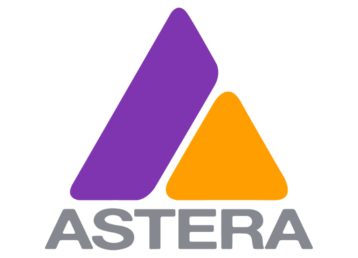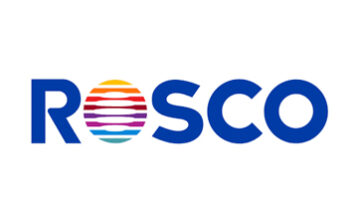HUNGARY
On the Hungarian copyright situation in general
In Hungary Act No. LXXVI of 1999 on Copyright (further referred to as the Copyright Act) regulates most of the questions relating to copyright issues.
In accordance with the Berne Convention the Copyright Act stipulates that the entirety of authors’ rights – moral rights and economic rights – shall belong to the author from the time of the creation of the work. Besides the provisions on the different types of exploitations or the specific cases of free uses, Chapter IX. accurately deals with Cinematographic Creations and Other Audio-visual Works.
It is not always easy to decide who may be recognised as the author of a certain work. According to the Copyright Act the authors of cinematographic creations are:
• the authors of the literary and musical works prepared for the purposes of the cinematographic creation,
• the director,
• and all other persons having made creative contributions to the production of the whole of the cinematographic creation
According to the Copyright Act the producer of the film is:
• The natural or legal person or the unincorporated economic organization who or which on its own behalf initiates and organizes the creation of the film and provides therefor the necessary financial and other conditions.
About the legal-contractual relationship between the authors and the producer together with the Assignment of rights in cinematographic creations
Unless otherwise stipulated – pursuant to the contract concluded on the creation of a cinematographic work, the author – except the composer of a musical work – shall assign to the producer the right to exploit the cinematographic creation and to authorise the exploitation of it.
The assignment of the right of exploitation, however, shall not extend to the following rights:
• right to remuneration for private copying
• right to remuneration for rental
• public lending and
• exclusive right to simultaneous, unaltered retransmission.
The above rights and rights to remuneration can only be managed via a collective right management society, which is FilmJus in Hungary in the case of audio-visual authors and producers (see below for further details).
According to the Act , remuneration is due to the author for each type of exploitation and it is to be paid by the producer.
Of course the producer may conclude an agreement with the user according to which the user shall become entitled to pay the due royalties.
Unless otherwise agreed the remuneration shall be in proportion to the income earned by the use of the work. Furthermore the author may waive his claim to remuneration only by an express representation to that end. If say a contract does not contain any provision on royalties, the author is entitled to them due to the lack of his explicit waiver.
According to the Copyright Act the producer is obliged at least once a year, to report in writing to the author on the incomes related to the use of the cinematographic creation by modes of use.
The above rules of the Copyright Act are rather clear and “author-friendly”, however in practice there are some problematic issues:
It is indeed a problem if the producer authorises the exploitation after which it ceases without successor. In such case the user – referring to the provisions of the Copyright Act – can state not being obliged to pay the remunerations for not being the producer of the work. The same problem occurs if the producer transfers the right to use the work and the obligation to pay the authors’ remuneration to another – legal entity that ceases without a successor remaining the author in the loss of his remunerations.
Moreover FilmJus is aware of the fact – according to the information received by the represented authors – that for instance the provision obliging the producer to report on the incomes is not adequately effective. In practise the producers fail to fulfil their obligation on providing the annual report related to the incomes and uses of the audio-visual work.
FilmJus initiated an inquiry in front of the Ministry of Justice to reveal which are the provisions of the Copyright Act that are not complied with in practice.
About the collective management of the right to remuneration for private copying and the right to simultaneous, unaltered retransmission
As described earlier, the two mentioned rights – among others – belong under collective management.
According to the Copyright Act the remunerations for private copying and for cable retransmission are to be determined and collected by the organization performing the collec-tive administration of rights in literary and musical works (today: Artisjus) in agreement with the collecting societies of other interested rightholders.
The Copyright Act determines the shares due to the different categories of rightholders from the above-mentioned remunerations.
The shares are the followings:
Private copying (video carriers):
Rightholders
Share (%)
film producers 13
cinematographic creators of films* 22
script writers 16
composers and lyricists 20
creators of fine arts, designs and authors of artistic photographs 4
performers 25
Retransmission by cable:
Rightholders
Share (%)
film producers 13
cinematographic creators of films* 19
script writers 14
composers and lyricists 15,5
creators of fine arts, designs and authors of artistic photographs 3
performers 26,5
producers of sound recordings 9
*According to the Rules of Distribution of FILMJUS, this category includes directors and cinematographers.
As mentioned above, the remunerations for private copying and for retransmission by cable are collected by Artisjus for all categories of rightholders. The distribution of these remunerations is made by other societies. For example FilmJus in the case of audio-visual authors and producers.
On the Activity of FilmJus
FilmJus is a Hungarian collective administration society for the protection of audio-visual authors’ and producers’ rights, in the territory of Hungary, authorised by the competent Ministry of Education and Culture. The Metropolitan Court registered our organisation as collective administration society in 1997.
FilmJus represents the following rights holders: directors, directors of photography, writers of audio-visual works (including scriptwriters and the writers of the pre-existing literary works) and film producers.
As described above its activity includes the distribution of the blank tape levies and simultaneous cable retransmission remunerations.
1. The so-called blank tape levy (which is due to compensate authors for the private purpose copying of their works) is to be paid by the manufacturer of the blank carrier, or in case of manufacture abroad by the person obliged under the law to pay customs duties, or – in the absence of obligation to pay customs duties – by the person who imports them and by their first domestic distributor, under joint liability.
2. The simultaneous cable retransmission remunerations are to be paid by the cable service providers.
FilmJus deducts from the collected remunerations the administration costs and the benefits for cultural and social purposes, which are in conformity with international standards.
The represented authors
In Hungary the collective administration system is of an “extended” nature by law which means that if a collecting society is mandated to manage a certain right by a large number of right holders (and receives the Ministry’s approval), the effect of such joint management is extended by law also to this right of those rightholders who have not entrusted the organization to manage their rights. Practically this means that FilmJus represents all Hungarian authors (and their inheritors) and producers.
Considering the international activity of FilmJus, I underline that FilmJus concluded in the past years a large number (28) of representation agreements with foreign sister societies. Based on these contracts it also represents thousands of foreign authors.
Historical background of the Hungarian film industry before 1987
The state always played a significant role in the Hungarian film industry. This meant governmental support on the one side and film production by state owned companies on the other side. Before 1948 independent film producing companies and state owned companies were also in the market. The Hungarian film producing companies were nationalised in 1948, which meant that the companies and all their assets, including the copyrights in the works produced by them became government property. Between 1948 and 1987 films were produced exclusively by state owned companies and from government fund. Production and distribution was performed by a few large companies. The system changed in the eighties when new film producing companies were formed by separation from the existing ones and by the foundation of new ones.
Ownership of copyrights and neighbouring rights in the audio-visual works belonging to the national film assets
As expressed above, most of the copyrights in the Hungarian AV works produced before 1987 were transferred to the producers.
The majority of these rights were acquired by the State by two methods:
– by acts (e.g. acts on nationalisation)
– by contracts, when the film producing company was owned by the state, the state acquired the copyrights transferred by the author to the producer.
The copyrights owned by the state in the works produced before 1948 are administered by the Hungarian National Film Archive.
The copyrights and related rights in the works produced between 1948 and 1987 belong to the property of film producing/distributing companies that are owned by the state.
The Motion Picture Act adopted in 2004 provides that the copyrights due to the state and the neighbouring rights of film producers due to the state , as well as the original negative copies of the works affected shall be designated as the national film assets, which shall be deemed to form a part of treasury assets. It is also stipulated by the Act that the national film assets shall be administered by the National Film Archive. In order to comply with these provisions the rights in the national film assets should be transferred from the film producing/distributing companies to the Hungarian State Holding Company that shall authorise the National Film Archive to administer the rights in the national film assets.
The deadline of the transfer and authorisation settled was the 1st of December, 2005 and the process has not been finalised until today.
FILMJUS has already sent a draft agreement to the Film Archive in order to settle the conditions of licensing and remunerations due to the rightholders represented by our society.
A recent issue affecting the Hungarian copyright system and Conclusion
The so-called monopoly state of collective right management is questioned from time to time. In March, 2007, the European Commission initiated an infringement procedure against Hungary (among other countries) stating that the provision of the Copyright Act that allows only one collective right management society to act on behalf of a certain right of a certain category of rights holders is the obstacle of freedom of settling and the freedom of services.
The Copyright Act was amended in 2008, however, the final version of the Act leaves the monopoly unaltered.
According to the opinion of FilmJus multiple right management would bring chaotic situation. Concerning the collection of remunerations the persons obliged to pay would – as an answer to the notice – easily respond that the due sum had already been transferred to another collecting society.
With regards to distribution it is obvious that the efficiency is the highest if only one organisation acts on behalf of the rightholders. For example in case of the blank tape levies, the collection happens before being aware of the person of right holders to whom the remuneration is due.
According to the opinion of FilmJus the non-monopoly structure is only feasible in the field of payment, but as regards collection and distribution it would lead to a situation greatly disadvantageous to the authors, against which FilmJus will always protest.
FilmJus always tried to be a “bastion” of the protection of authors’ rights. Not just by fulfilling its legal obligations but also by providing legal advice in the field of copyright, contributing to the amendment of laws with its proposals or simply not remaining silent when it was needed.

